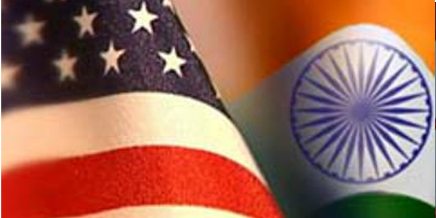China and Pakistan are closely coordinating their strategy against India.
IANS
 Amid China and Pakistan’s opposition to India’s bid to join the Nuclear Suppliers Group, the US has backed New Delhi’s entry into the group.
Amid China and Pakistan’s opposition to India’s bid to join the Nuclear Suppliers Group, the US has backed New Delhi’s entry into the group.
US State Department spokesman John Kirby on Friday quoted US President Barack Obama as saying during his visit to India in 2015 that “India meets missile technology control regime requirements and is ready for NSG membership”.
To reports that China has blocked India’s membership to the group, Kirby said the US was committed to help India become a member of NSG.
On Pakistan and China’s position on India’s membership to the suppliers group, Kirby referred the mediapersons to the governments of the respective country.
“IÂ’m going to refer you to the governments of China and Pakistan with respect to their positions on IndiaÂ’s membership,” Kirby said.
China and Pakistan are closely coordinating their strategy against India’s admission into the Nuclear Suppliers Group (NSG), Sputnik News said quoting US sources who work with the group.
The sources pointed to the fact that when India requested a session with the NSG participating governments at the recent NSG Consultative Group meeting on April 25 and 26, where it would have made a formal presentation in support of its membership, Pakistan also sought a similar opportunity.
Though aware that its request would not be accepted, Pakistan made it in order for China to look “neutral” and reject both applications on grounds of parity, it said.
Sources from the US expressed their disappointment with China’s tactics of “using Pakistan’s non credentials with the NSG to settle scores with India.” The “either both or none” strategy is not a secret; it was coordinated during the visit of Pakistan’s President Mamnoon Hussain to China in November 2015.
Sputnik News quoted sources as saying that the Chinese government told President Hussain that if India is allowed into the NSG, China would ensure that Pakistan also gets its membership in the group. However, “if India is allowed to join the NSG and Pakistan is deprived of NSG membership, Beijing will veto the move and block the Indian entry.”
“India’s non-proliferation credentials are not comparable with Pakistan’s, as Pakistan has a history of “selling nuclear technology to rogue states like Libya,” the sources noted.
Moreover, the West fears that Pakistan’s nuclear weapons could easily find their way into the hands of terrorists. China knows that Pakistan does not stand a chance at the NSG, and most of the NSG members will reject its application. Nevertheless, that did not stop Beijing from using Pakistan as a “parity token to stop India which is fast emerging as China’s competitor,” added the sources.
Meanwhile, in Beijing the foreign office spokesperson, to a question on India’s NSG membership, said that all the multi lateral non-proliferation export control mechanisms, including the NSG, have been taking the Nuclear Weapons Non-proliferation Treaty (NPT) membership “as a necessary qualification for their accession”.
“Not only India, many other non-NPT members have voiced their aspirations to join the NSG. This poses a question for the international community. Many NSG members, China included, think that this matter shall be fully discussed and then decided by consensus among all NSG members in accordance with the protocols and procedure of the NSG,” said the spokesperson.
“We supported and also took part in such discussions. As we repeatedly said, our position targets no one. It applies to all non-NPT members. Why we and other like-minded members are committed to this position is because we want to uphold the international nuclear non-proliferation regime based on the NPT,” the Chinese official said on Friday.



